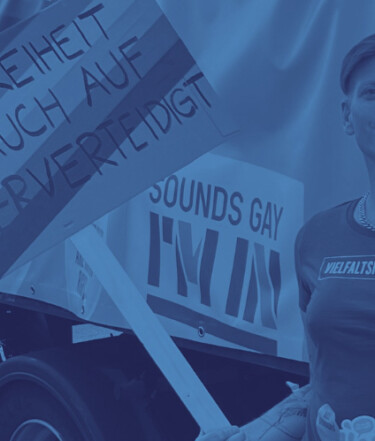
UN reviews social rights in Germany
In Germany, there are serious shortcomings in guaranteeing human rights to education, housing, and social security. Together with other organizations, the Society for Civil Rights has submitted four statements to the relevant UN committee.
How do the UN monitor the human rights situation in Germany?
In a regular reporting process for all signatory states, the German government must explain to the UN how it is implementing the UN Social Covenant. To this end, the committee examines the German government's report using a questionnaire known as the List of Issues. The UN will agree on these critical points by fall 2025. A year later, the committee will meet in Geneva and publish its concluding observations. These will contain the most important points of criticism and recommendations for better implementation of the UN Social Covenant.
In order to assess the extent to which Germany is fulfilling its human rights obligations, the Committee needs information from civil society. Non-governmental organizations (NGOs), trade unions, and other groups had until June 30, 2025, to contribute their information to the List of Issues. In 2026, the GFF and other organizations will then publish shadow reports with additional information.
Where does the federal government need to improve social rights?
On June 30, 2025, the Society for Civil Rights, together with other organizations, submitted statements on the List of Issues:
- Right to education: Together with the Berlin branch of the Education and Science Union (GEW), the Berlin Alliance for School Inclusion, Lebenshilfe Berlin e.V., and ADAS, the contact point for protection against discrimination in Berlin schools, we submitted a statement on the right to education. The focus is on equal access to education, a shortage of teachers, and inadequate equipment in schools. The underfunded education sector particularly affects students who are already disadvantaged, such as children with disabilities or children of parents without educational qualifications. In Berlin alone, 2,300 to 2,800 children with special needs do not attend school or only attend part-time because the schools are so poorly equipped.
- Right to housing: Together with the Federal Working Group on Homelessness Assistance (BAG W), we have submitted a statement on the right to housing. Over half a million people in Germany are homeless. Around 50,000 of them live on the streets. The federal government wants to end homelessness by 2030. There is a lack of affordable housing and the number of social housing units is continuing to decline. People are not adequately protected against rapidly rising rents and the loss of their homes.
- Fair taxes: Together with the Tax Justice Network, we have submitted a statement on tax policy in Germany. The federal government has committed itself to mobilizing as many available resources as possible to guarantee social human rights. This includes appropriate taxation of wealth and inheritance. However, there is no wealth tax in Germany, and large inheritances are de facto hardly taxed at all. Instead, value added tax accounts for a large proportion of government revenue and places a particularly heavy burden on people with lower incomes.
- Further rights: Together with Forum Menschenrechte (Human Rights Forum) – a network of over 50 German NGOs – we have submitted a comprehensive statement highlighting, among other things, numerous gaps in social services for refugees. It also addresses the increasingly precarious situation of citizens receiving basic income support and social assistance in Germany. Even the Scientific Advisory Board at the Federal Ministry of Food and Agriculture has come to the conclusion that the standard rate is too low to afford a balanced and healthy diet.
- Support for refugees: Together with the Federal Working Group of Psychosocial Centers for Refugees and Victims of Torture (BAfF e.V.), Doctors of the World e.V., and PRO ASYL, we have submitted a joint statement on the inadequate support provided to refugees in Germany. In the statement, we criticize, among other things, that refugees receive only very limited health care and that undocumented migrants have no access to medical care at all. The often undignified accommodation of refugees in isolated mass shelters is also a focus of attention.
Germany urgently needs to improve its record on social human rights. Around 18 percent of the population lives below the poverty line. For many people, basic human rights such as the right to education, housing, or adequate health care are not guaranteed. The federal government now has the opportunity to take countermeasures and protect the human rights to which it has expressly committed itself in the UN Social Covenant.
The work of the Society for Civil Rights on the UN Social Covenant is supported by the Robert Bosch Foundation.



